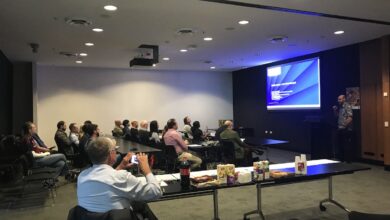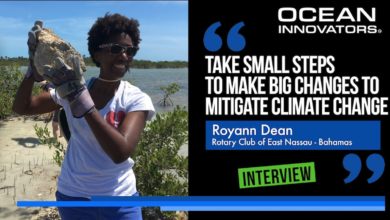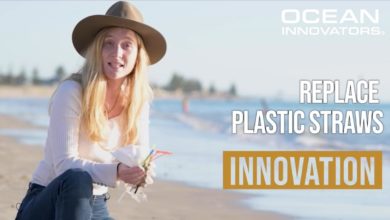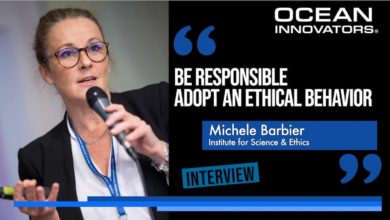- Operation Mer Propre
- World Oceans Day
- About our actions
- Impacts of Covid-19
Operation Mer Propre is a French association located in Antibes who made the buzz in June 2020 for its innovative approach to protect our Oceans. The group of underwater snorkelers is manually removing Medical Personal Protective Equipment (PPE) from the bottom of the seas. They expect a surge of plastic pollution from masks and gloves once heavy rains starts washing off our cities.
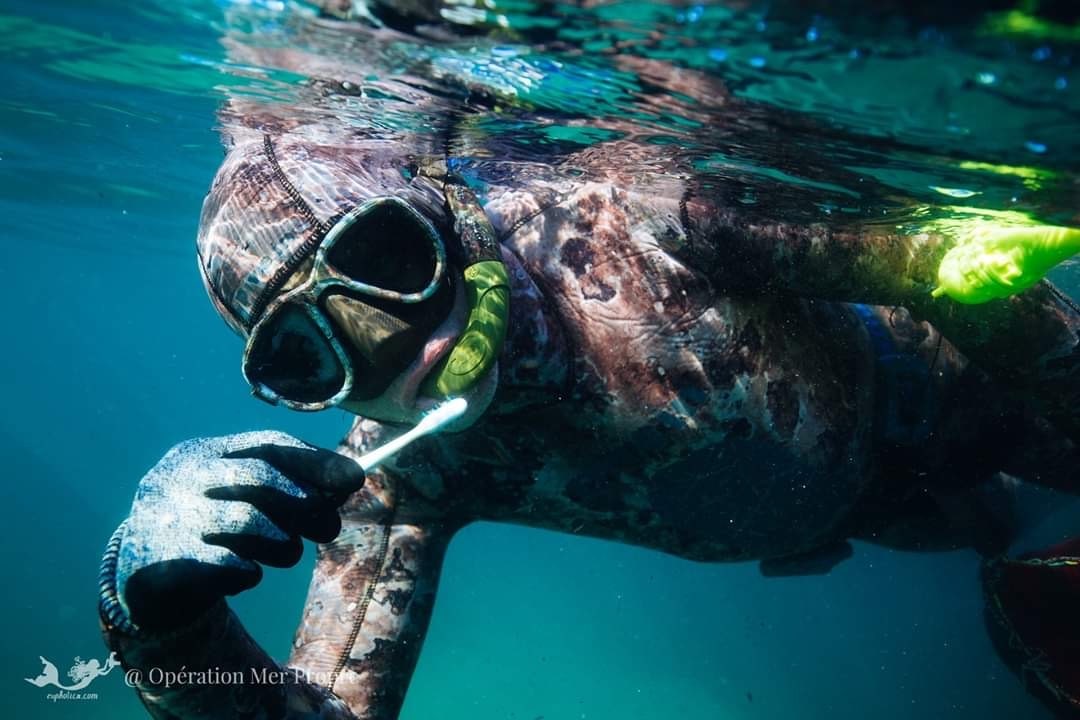
Operation Mer Propre: Collecting PPE pollution under the sea.
Operation Mer Propre is a French association located in Antibes would made the buzz in June 2020 for its innovative approach to protect our Oceans. The group of underwater snorkelers is manually removing Medical Personal Protective Equipment (PPE) from the bottom of the seas. They expect a surge of plastic pollution from masks and gloves once heavy rains starts washing off our cities.
World Oceans Day challenges amid the Covid-19 pandemic
World Oceans Day is celebrated all around the world to remind everyone of the major role the oceans have in everyday life. In these uncertain times, Covid-19 has now affected the entire population worldwide. Effects of the pandemic were huge on land and are starting to show underwater. What is the impact of this pandemic on our Oceans? Will the new norm become swimming in an Ocean of plastic gloves and masks?
About “Operation Mer Propre” – Operation Clean Seas
- What could you advise – how each person around the world can make a difference during this pandemic period?
“It is true that we have to protect ourselves, however, each one of us has the power to pick more sustainable solutions and reduce single use plastics.”
- Can you tell us about your organization?
“It is new association, created by 3 underwater hunters who were tired of seeing underwater litter. We all met at a clean-up day about a year ago and we decided to launch this project to preserve and conserve all water bodies (lake, sea and oceans). We organise underwater and land clean-ups with our team, we run education project in schools and we reuse litter to create new items in partnership with other association. We also have a museum with our creations.”
- How do your actions take shape?
“We spend a lot of time in reconnaissance missions where we run weekly activities, mostly during weekends. We have also identified specific zones which are more polluted than others.”
- Who are the members of your association?
“We have active members and supporters. Most of them used to practice underwater hunting or snorkelling. From 16 years old to 70 years old, there are all very passionate about ecology to conservation and are keen to find solution to reduce pollution.”
- What are your needs ? How can we help you?
“We need a lot of materials, for instance to lift tyres and other heavy items out of the water (e.g. snorkelling equipment, underwater parachutes and grabbers). We need more members and sponsors. We also collaborate with city councils to fund these important clean-ups. We are also looking for a spot to park a boat for our operation.”
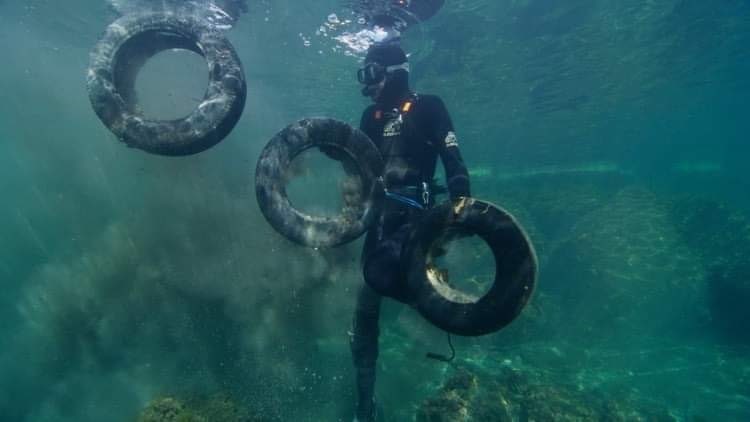
Picking Covid-19 Equipment debris at the bottom of the seas
- Can you tell us about what you discovered during the May 24 dive?
“We dived over the weekend, and we found a lots of bottles, when suddenly, we found protective gloves partly stuck in the sand. Looking closer, we then realised the seabed was covered with masks and plastic gloves, looking very much like a jelly fish…”
- When you found these masks and gloves, how did you experience this discovery? how did you feel?
“We were extremely surprised! We did not expect to see plastic gloves and medical masks so quickly.”
- Where do you think the masks come from? How do you think they got there?
“Considering the odyssey of traditional plastic wastes, it all starts in the street. When an item is on the ground, it falls in the gutter as soon as it rains. The medical equipment gets transported all the way to the river and the seas. We are not exactly sure why we are already finding these items since rain season has not even started yet. It happens with every single items consumed by humans.”
- How does Covid-19 affect pollution in the Mediterranean in general?
“Considering the amount of personal gloves and medical masks ordered by each country worldwide, we could expect up to 350,000 tones of additional pollution generated as a result of the Covid-19 crisis. This is roughly equivalent to the weight generated by annual plastic bottle pollution.”
- Do you think that the problem of pollution linked to Personal Protective Equipment will become permanent?
“We are hoping that people realise the result of their actions before it is too late.”



